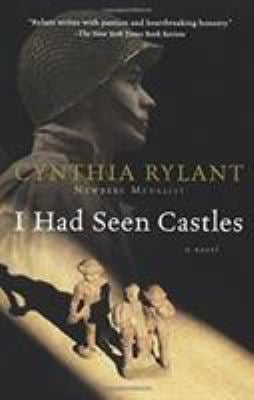Written by Cynthia Rylant
I have always been an outsider to war. When I look into the eyes of a soldier, I see a hero. I see someone who has risked his life for our country and protected us from harm. I see strength, bravery, and wisdom—and I am thankful that he has made it home and can find happiness with his friends and family. When I look into the eyes of a soldier, I do not see the war—I see hope for a better future.
But, when I look into the eyes of a solder, I am, and always will be, an outsider.
The eyes of a soldier tell a different story. They cannot take back the unimaginable things they have seen and there are no other eyes—other than those that have seen the same—that can truly understand.
John Dante is seventeen years old in the midst of World War II. His friends who are eighteen have already enlisted in the War. John has mixed emotions throughout the book on whether or not to join the war, but in the end—he decides to do so when he turns eighteen.
I Had Seen Castles, a powerful young-adult fiction novel written by Cynthia Rylant, opens our eyes not only to the brutality and horrifying experiences of fighting in a war, but to the innermost thoughts and feelings of those fighting. It’s a story about love, loss, hope, and growing up far too fast.
As with many of Rylant’s other books, she is able to emotionally engage us in the text through her use of descriptive text. Her language is poetic and beautiful, even though she is describing horrifying events. “The pictures in Life may have shown suffering and death to the people back home, but they never showed dismemberment. The shoes with feet and legs up to the knees still standing, and nothing more. The rest of the boy is gone. Or the chest cavity blown wide open so that the heart can be seen, still beating, and the boy to whom the heart belongs reaches out and asks to be helped to die.” And, she put into perspective how many innocent people died, “Thirty million Russian people died in the Second World War. Not soldiers—families. Thirty million people. Mothers and grandmothers, fathers and children. They burned and bled, littering the landscape. Their beds burned and their toys. Their wedding pictures and their babies’ carriages.” She helps open our eyes as readers and the way she describes death and the war makes us think about its’ true purpose.
Rylant mentions in the back of the book that although she did some research for the story, she relied heavily on her heart in order to write it. Her inspiration for the story was due to special newspaper editions with interviews from World War II Veterans—marking it’s fiftieth anniversary. I wonder how much information she gathered from real veterans and how much she made up or assumed a soldier would think. I did read in a biography of Rylant that her father was a veteran of the Korean War and died when she was only thirteen. It did not seem that she was that close to her father or knew much about him. I wonder how much, if any, of her inspiration came from her father’s experiences.
John Dante was forever changed after the war in ways that few could understand. After all, John had seen castles—and everything else could never be seen the same way.

No comments:
Post a Comment